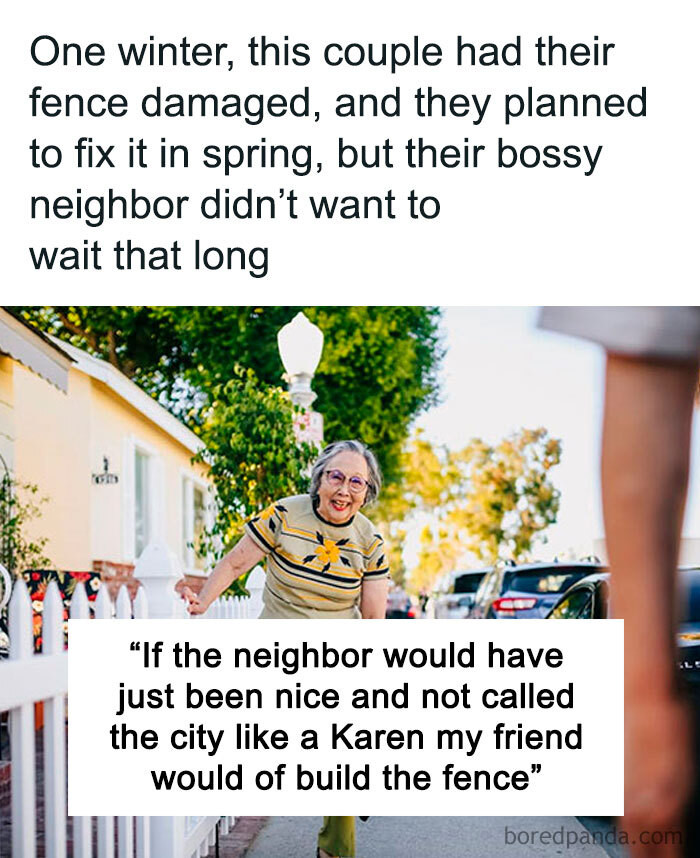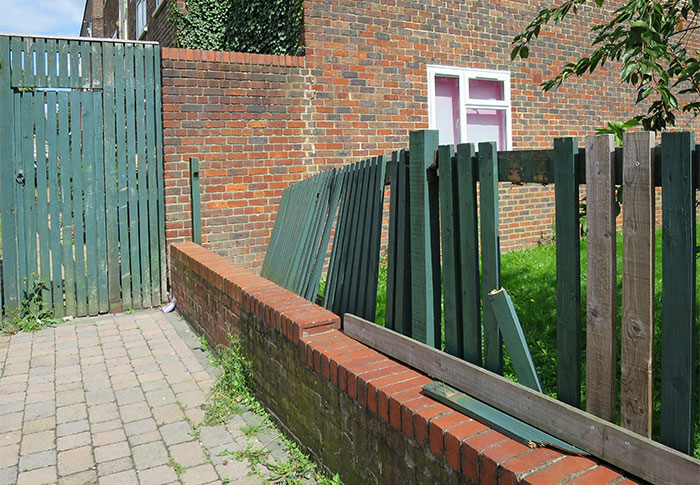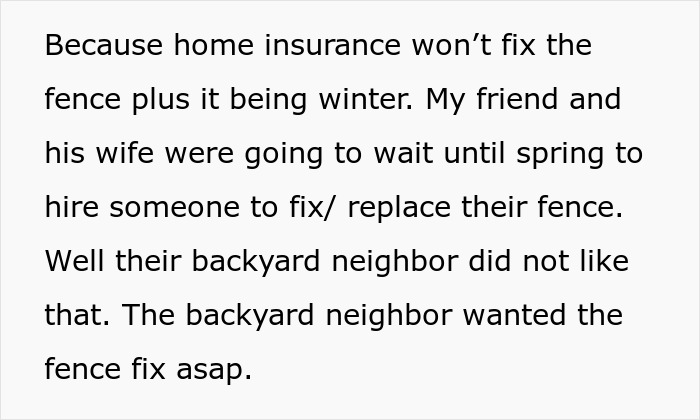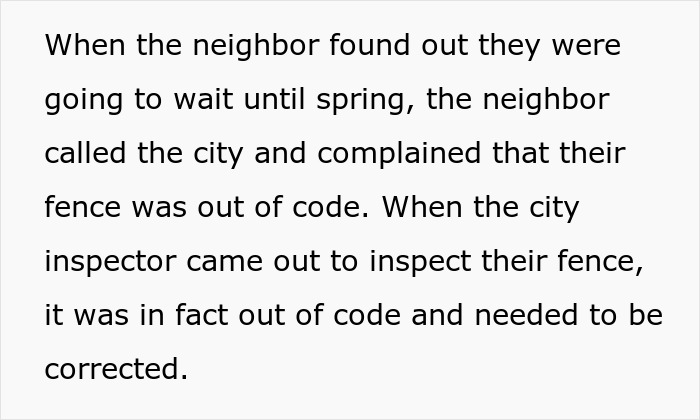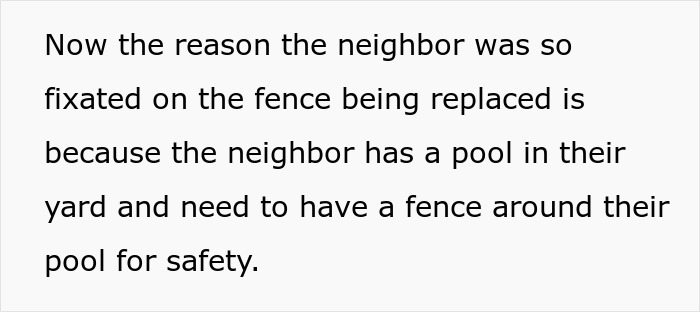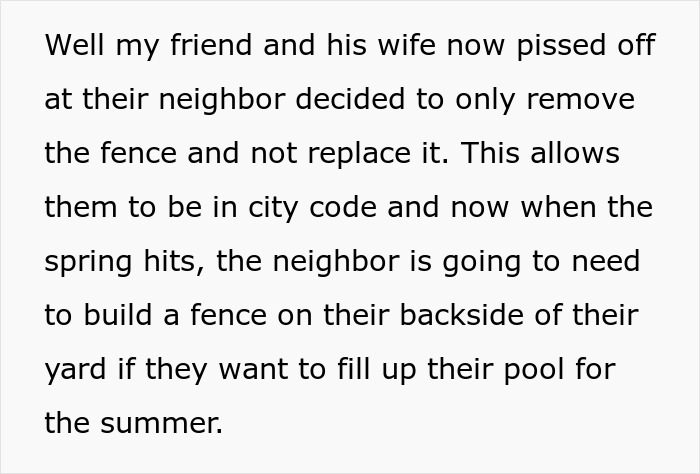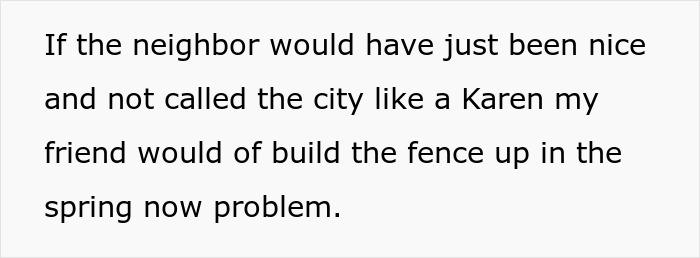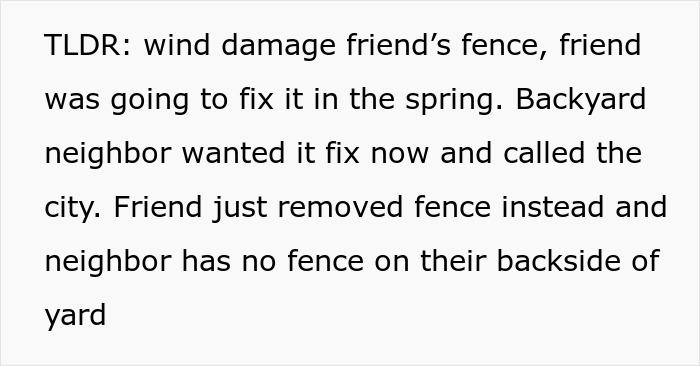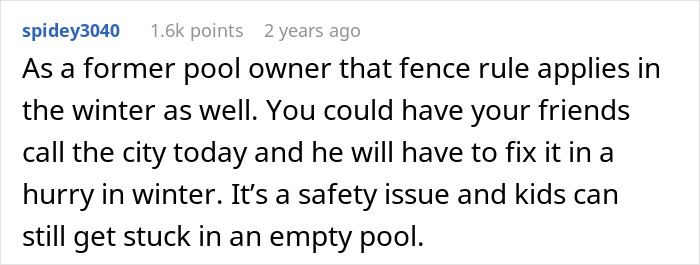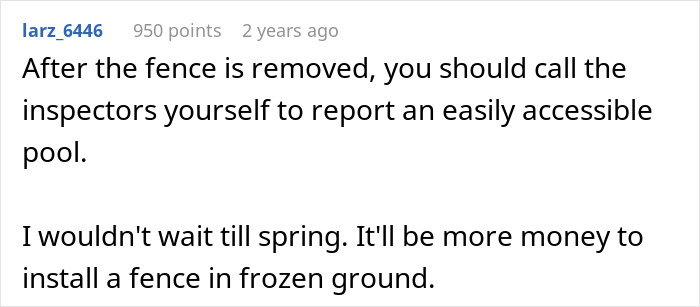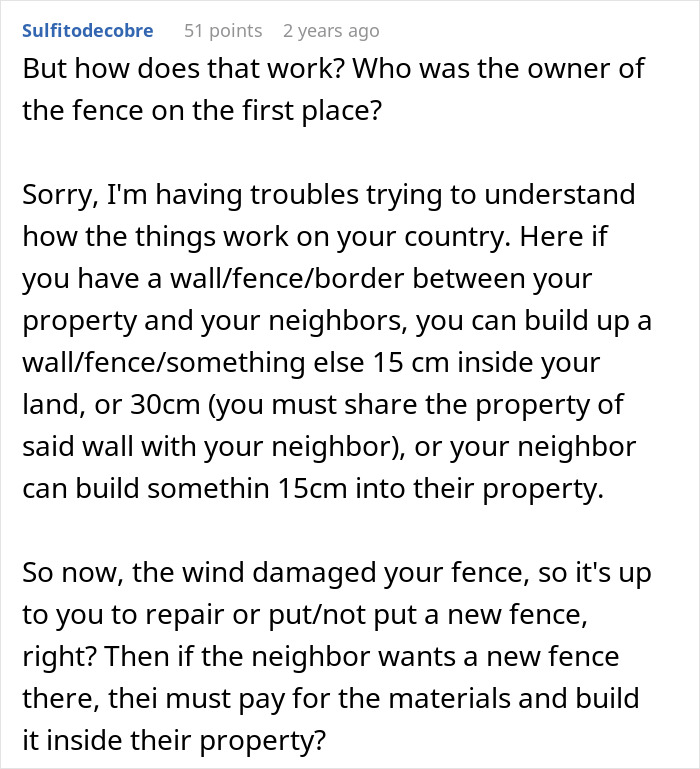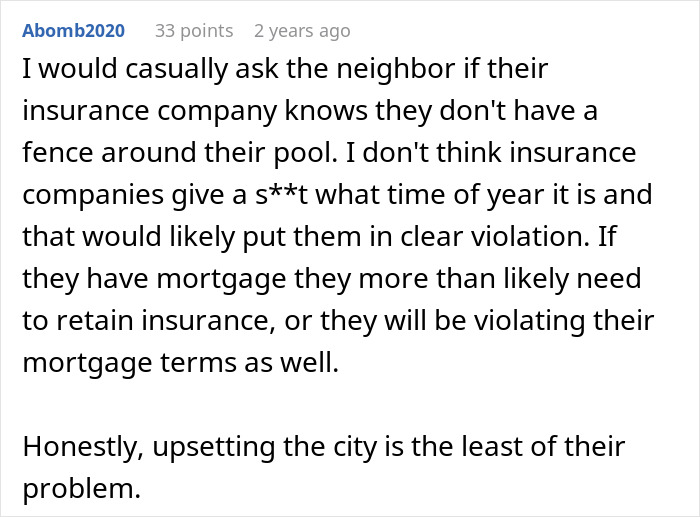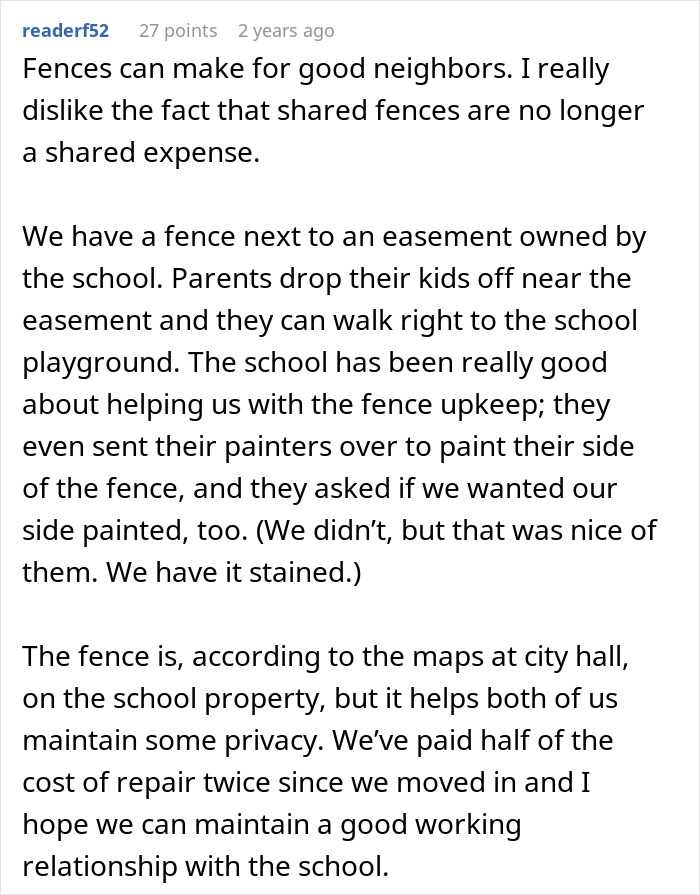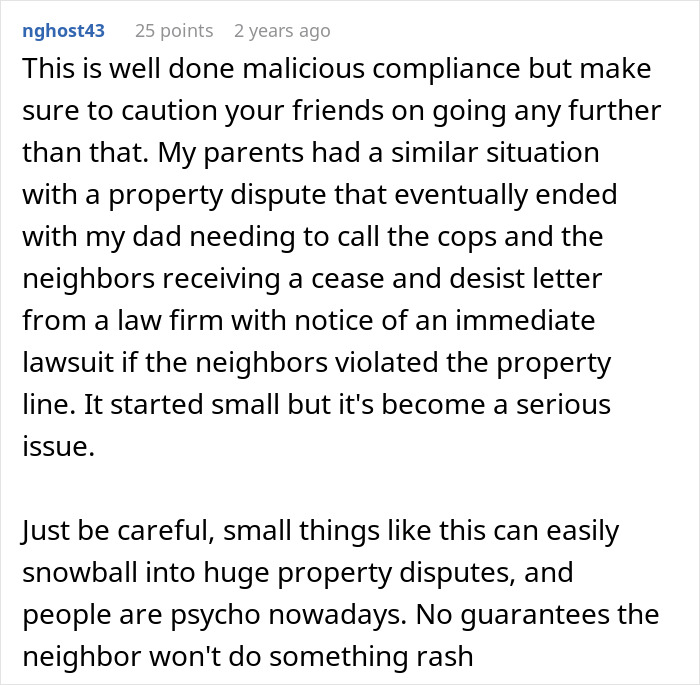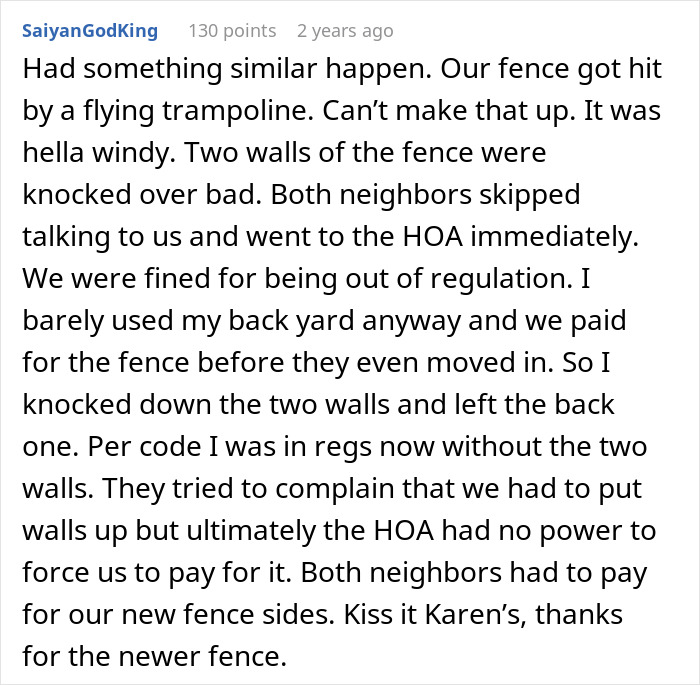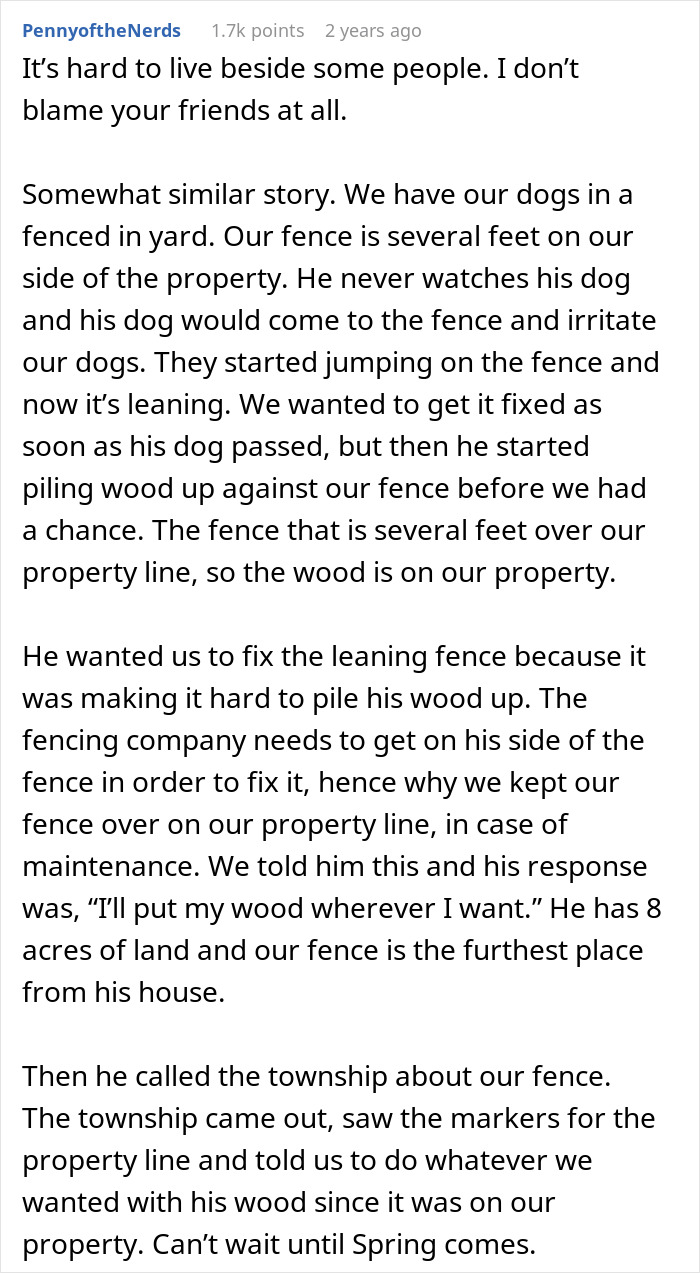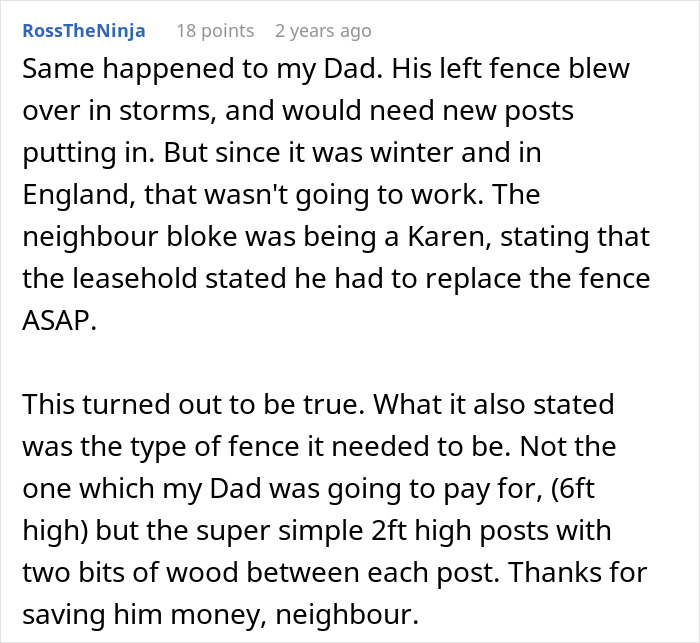In an ideal world, our neighbors not only lend us power tools or a cup of sugar whenever we’re in a pinch but they also share a good laugh and maybe even invite us to their barbeque party.
However, as Reddit user NotGayRyan‘s post on r/MaliciousCompliance tells us, reality can be quite different.
In it, he recalled a time when his friends had their fence damaged and the person living on the opposite side pressured the couple to repair it ASAP, so much so that they even called the city to speed things up.
One winter, this couple had their fence damaged, and they planned to fix it in spring
Image credits: Alan Stanton / Flickr (not the actual photo)
But their bossy neighbor didn’t want to wait that long
However, the authorities told the neighbor it was their own problem
Image credits: LightFieldStudios / Envato (not the actual photo)
Image credits: NotGayRyan
Neighbors usually settle their disagreements themselves
Before taking legal action, often the best move is to approach your neighbors in person. Many disputes can be resolved through open discussion.
Calling in the authorities every time you disagree can seriously damage the future of your relationship, many of which have been deteriorating in many places around the world.
For example, in the 1970s, more than two in five Americans said they spent at least one social evening a month with a neighbor, but now, just over half talk to their neighbors once a week (52%), and more than three in five have gone out of their way to straight-up avoid them.
Furthermore, more than one in four say they don’t care to get to know their neighbors better (27%).
This story also illustrates the fact that half of Americans are annoyed by their neighbors at least a few times a month (most often due to general noise, loud parties, and parking).
Image credits: RDNE Stock project / Envato (not the actual photo)
When neighbor vs. neighbor conflicts arose, most took steps to address the situation (86%) and:
- Discussed the issue personally with the neighbor (49%);
- Called the police (27%);
- Notified the neighborhood or owners association (15%);
- Sent a letter, note, or email (11%);
- Went to court (4%);
- Went to mediation (4%);
- Took some sort of other action (4%);
- Took no action at all (14%).
In the vast majority of cases – 82% – people said that the issue was eventually resolved to their satisfaction:
- Mutually settled (40%) (no outside or third-party intervention);
- The matter resolved itself (35%) (neighbor moved, behavior stopped, etc.);
- The outside party solved the problem (11%) (police, court, association, etc.);
- The matter is still unresolved (14%).
So let’s hope these folks find a way to put their differences behind them as well.






